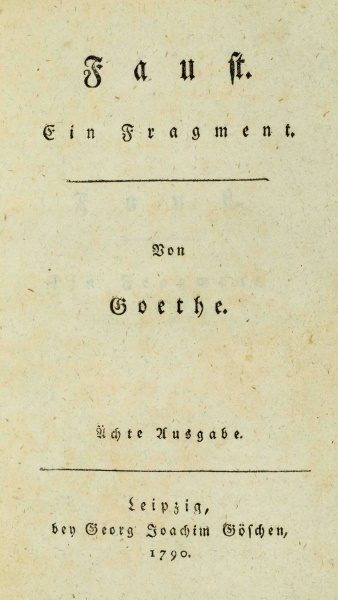Goethe: Faust
Johann Wolfgang van Goethe was many things: statesman, poet, literary critic, philosopher, scientist, and novelist. But it is Faust, the German writer’s drama about a man who sells his soul to the devil, for which Goethe is perhaps best remembered. The story itself originates from a German folk tale. Christopher Marlowe brought the tale to the Elizabethan stage with his production Dr. Faustus, but it is Goethe’s reworking of the story nearly two hundred years later that places it in the canon of great literature. The plot involves an accomplished scholar who grows disenchanted with his life and yearns for power and earthly pleasures. The devil, in the figure of Mephistopheles, offers to grant Faust’s wish in return for the scholar’s soul. With the devil’s aid, Faust achieves his desires, including the seduction of a virtuous maid who is subsequently destroyed by his deceptions. Goethe worked on an early version of the story referred to as Urfaust which was part prose, part rhymed verse. The work we have in Imprints and Impressions is indeed exceptional: It is the first known published version (albeit a fragment) of the play, dated 1790.
Margaret Strain, PhD, Professor, English

